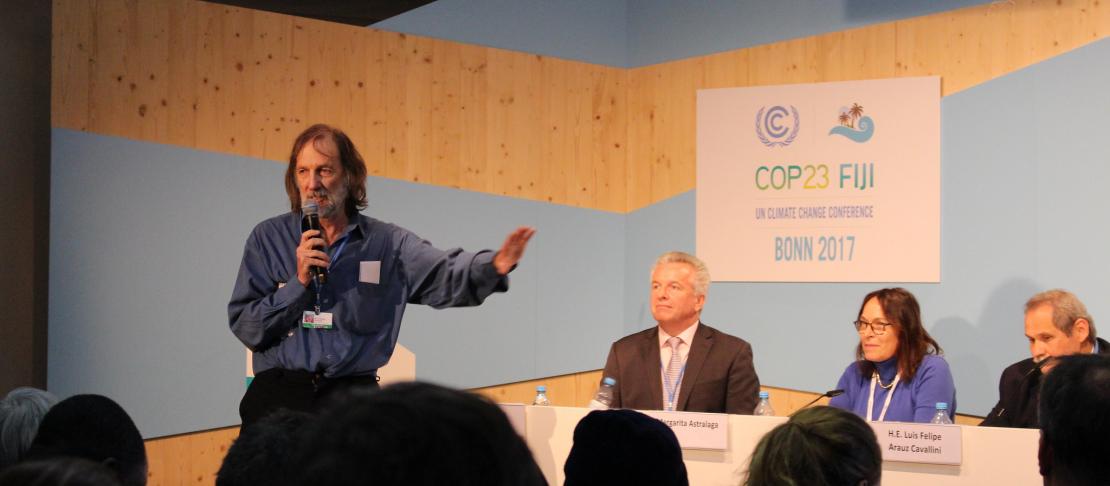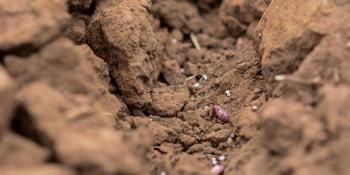Informing UNFCCC decision on agriculture at COP23

In 2015, almost all countries around the globe agreed to limit global warming by signing and ratifying the Paris Agreement. In 2017, the 23rd United Nations Framework Convention on Climate Change Conference of the Parties (COP23) marked another step toward implementing the agreement. During the negotiations, countries managed to agree on a new work plan concerning agriculture: the Koronivia Joint Work on Agriculture. Several people acknowledge the crucial role CCAFS played in reaching this consensus:
The late Fred Kossam, leader of the African Group of Negotiators agriculture team, wrote:
Without CCAFS and other partners support we could [not] have gotten [to] this milestone decision after six years of tough negotiations.”
Victoria Hatton, agriculture negotiator for New Zealand, said:
CCAFS research and policy work on the NDCs has really contributed to the discussions in the SB negotiations, underpinning some of the key arguments that we have used to demonstrate the importance of agriculture to meeting the Paris Goal.”
CCAFS began by conducting research on country implementation plans for the Paris Agreement. The findings demonstrated that there was strong interest among the majority of countries for action on climate change in the agriculture sector. Alongside this effort, CCAFS conducted research on the changes needed to limit global warming to 2°C with several partners. It showed the importance of the agriculture sector for meeting the goals of the Paris Agreement.
Having confirmed both the interest in and need for negotiations on agriculture within the UN, CCAFS took action to support these negotiations. Firstly, negotiators needed concrete, science-backed options, and CCAFS provided those through a round of policy briefs (see below). CCAFS also used the official channel to provide information to the negotiations in the form of a submission. Secondly, CCAFS made sure this information reached negotiators through media campaigns, side events and workshops conducted around COP23. Lastly, CCAFS used the opportunity to highlight the importance of gender and social inclusion, which is also reflected in the decision reached at COP23.
In addition, CCAFS provided support to the African Group of Negotiators, the Independent Association of Latin America and the Caribbean countries, and to members of the Association of Southeast Asian countries.
Further reading
Project partners
FAO, Ministry of Environment and Forestry (Kenya), Ministry of Natural Resources, Energy and Mining (Malawi) (MoNREM), International Development Research Centre (IDRC), Common Market for Eastern and Southern Africa (COMESA), African Climate Policy Centre (ACPC), African Development Bank Group (AfDB), Ministry of Agriculture, Livestock and Fisheries - Kenya (MALF), West and Central African Council for Agricultural Research and Development (CORAF/WECARD)


